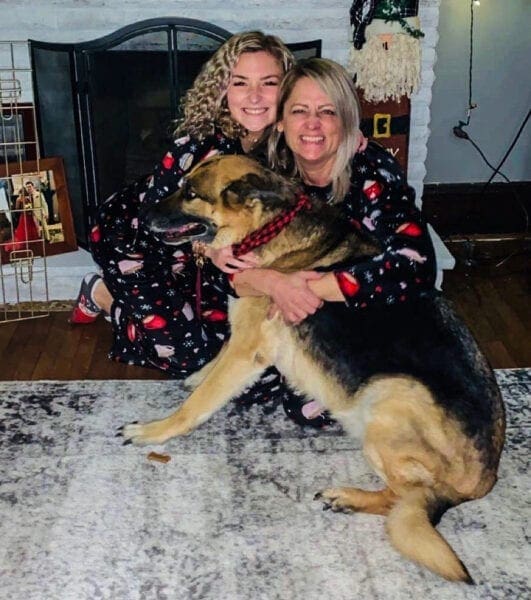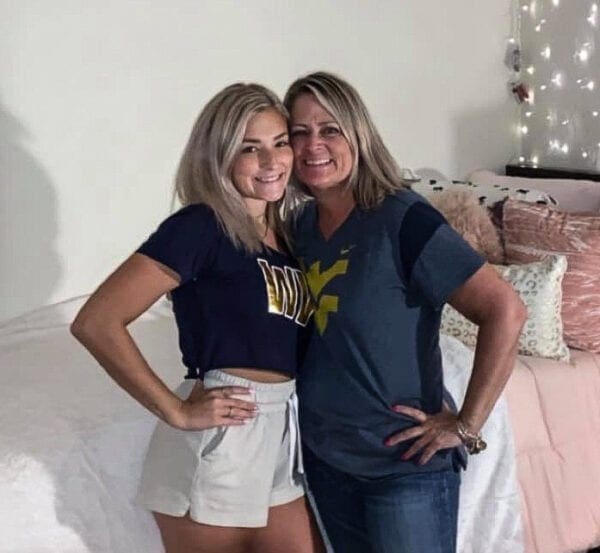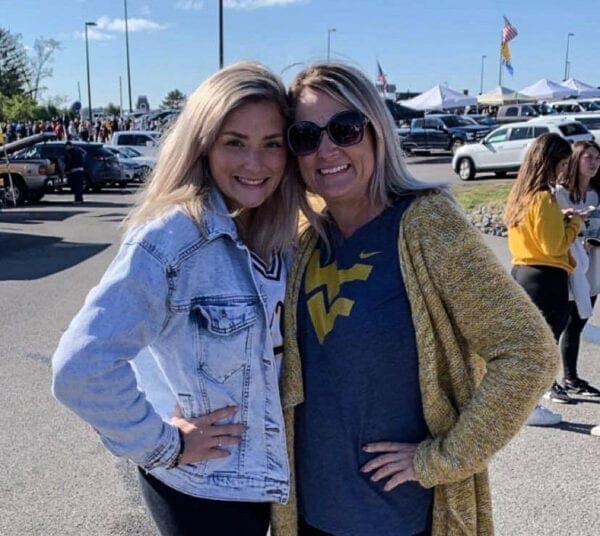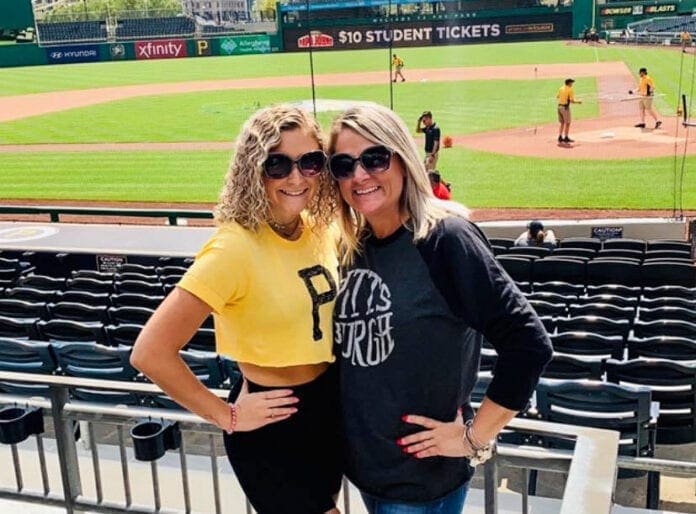She can be one of the nicest people anyone could ever meet unless, of course, Amy Nickerson encounters an individual trying to abuse a citizen of West Virginia.
That’s what takes her smile away and makes her mean.
Nickerson is employed by the state Attorney General’s Office as a consumer advocate and compliance specialist for the Northern Panhandle region, and sadly she takes constant calls from residents about attempted phone and email scams, fraudulent business operations, and elder abuse that arrives in all possible forms. Even during this pandemic, bad people have been attacking the good folks of the Mountain State.
A resident of Brooke County, Nickerson is the mother of a soon-to-be-sophomore at West Virginia University, and she welcomed home Abby once the Morgantown campus closed because of the coronavirus. Both of them remain hopeful she’ll be able to return in August, but two plans remain in place right now because of the uncertainty supplied by COVID-19.

How difficult was it for your daughter to finish her first year at WVU at home instead of in Morgantown?
Ending her freshman year at home was definitely not the way that Abby envisioned her time at WVU. Part of college life is about being able to deal with change, and that is exactly what she did.
The most difficult part of dealing with the pandemic has been the transition. When news of COVID-19 broke locally, Abby was on a plane to Kansas City to cheer for WVU at the Big 12 Basketball Tournament.
Not long after they arrived, things began to change quickly. One minute they were going to cheer that day; then the decision was made to proceed without any fans in the event center to finally they were sent back to Morgantown. She literally had less than 12 hours to attend her last lab and pack for what they thought would be two weeks at home.
As a parent I am thankful for the decision-making that WVU has done and the fact that throughout this pandemic the university has been wonderful at keeping us informed.
As far as her classes were concerned, Abby is a great student who can prioritize her schedule. She treated her days like a normal class day and worked hard to maintain her 4.0. Although she didn’t hate being home, she is looking forward to moving into her apartment and being back in Morgantown in the fall.
What has been the biggest challenge for you in your position with the Attorney General’s Office during this pandemic?
Being a consumer advocate for West Virginia Attorney General Patrick Morrisey means being available to the constituents in my region. My region consists of seven counties in the Northern Panhandle. The biggest challenge with my job during the pandemic has been making sure that I continue to be available and able to educate.
While I definitely miss being able to be face-to-face with people, I think I have been able to stay in contact and remain accessible to members of the community.
Making connections that have been sustainable throughout this historic time has been the key to staying involved. Local citizens have been referred to me through email, phone or even social media when they hear of a scam or injustice. I work closely with family resource networks, prevention agencies and elected officials.

How have you been able to reach local citizens since all of the events have been canceled for this summer?
Reaching out to local constituents has taken some creativity. Attorney General Morrisey has worked hard to keep the community informed. The Attorney General kept our consumer hotline available seven days a week and we took turns covering the phone calls from around the state.
Attorney General Patrick Morrisey began holding conference calls with local and state law enforcement and elected officials such as mayors, county commissioners and city council members. We wanted to help them understand the guidelines presented by the state. We also knew how important it was to help get questions answered.We had calls by each region, open to the public, to explain some of the guidelines and assist any way we could with questions.
How serious of an issue is senior abuse in the Northern Panhandle, and what do you and the AG’s Office try to do to raise awareness?
In West Virginia, our seniors are such a large and important part of our population. We need to protect them during this uncertain time more than any other, both with health concerns and financial abuse.
There are many red flags of financial abuse:
· Needs not being met by caregivers
· Unexplained changes to wills
· Suspicious changes to a senior’s financial condition
· Unusual wiring of money
· Presence of a stranger
· Signatures on checks that don’t match
Educating seniors about potential fraud will allow them to avoid harmful situations and help prevent financial exploitation.
If anyone suspects elder abuse or has questions, the WV Attorney General’s Office has a hotline at 304-558-1155. Those interested can also sign up for senior scam alerts at http://bit.ly/seniorscamalert.
How often do you receive complaints from residents of the Northern Panhandle, and what are the most popular concerns?

Consumer complaints are the biggest part of my job.
During a normal world without COVID-19, I have monthly mobile office hours in each of the county courthouses and senior centers to assist constituents in filing a complaint with the WV Attorney General’s Office. I can also mail citizens a paper complaint form, or they can go online at www.wvago.gov and file a complaint online.
The Consumer Protection Division provides assistance regarding state consumer protection laws. We have been able to successfully mediate complaints between consumers and businesses. If mediation is unsuccessful, the office determines whether legal action is needed to enforce compliance.
The largest portion of complaints are related to scams. The best way to stop scams is by educating consumers. Tips include:
· Keep personal information secure
· Never offer date of birth, social security numbers, or account information
· Shred sensitive information
· Check your credit report
· Monitor your financial accounts
And remember the saying, “if it sounds too good to be true,” it typically is. Any consumer that may question an email, a call, or a mailer he or she receives can contact the office and ask if it is legitimate by calling 800-368-8808.


